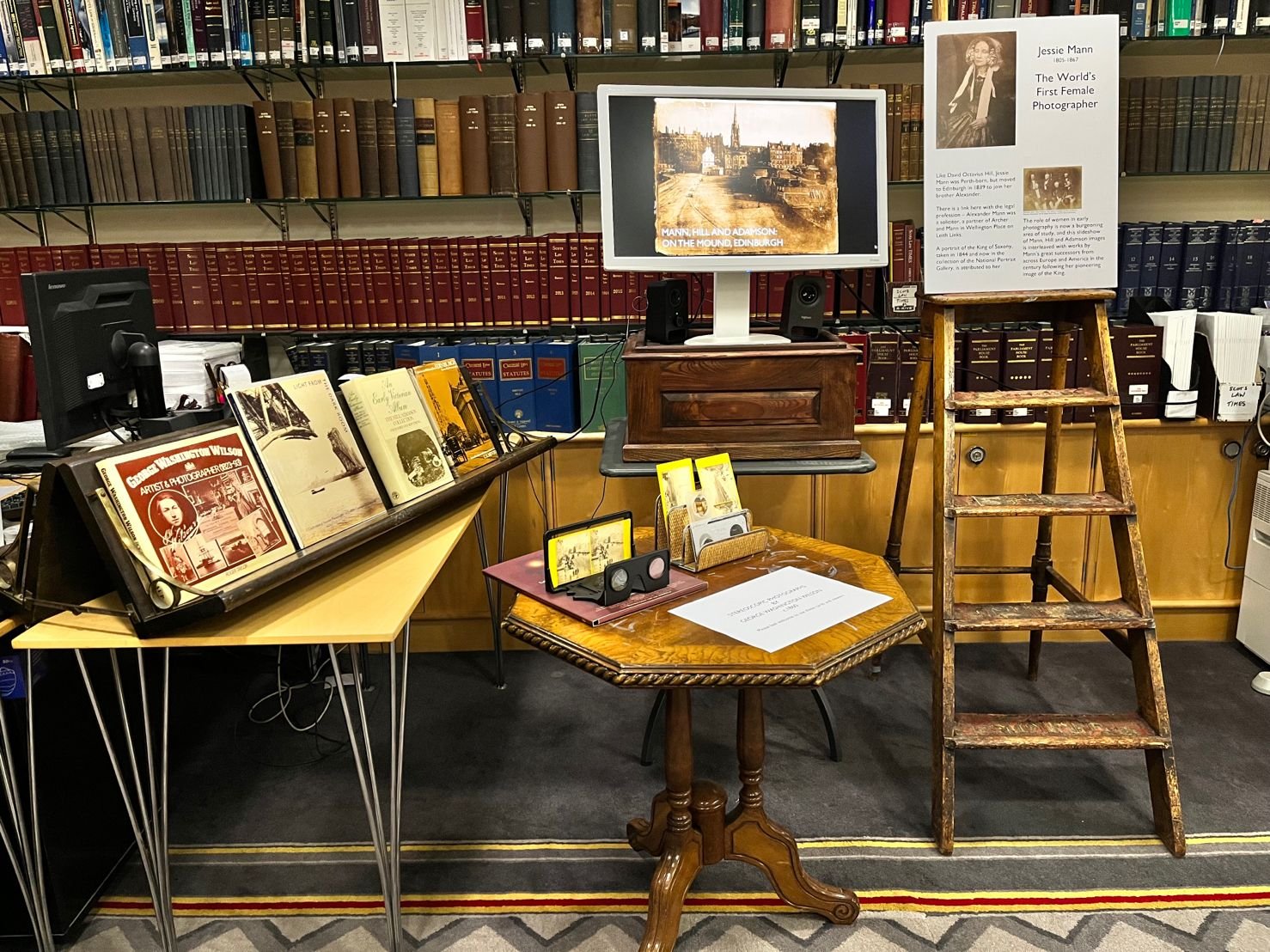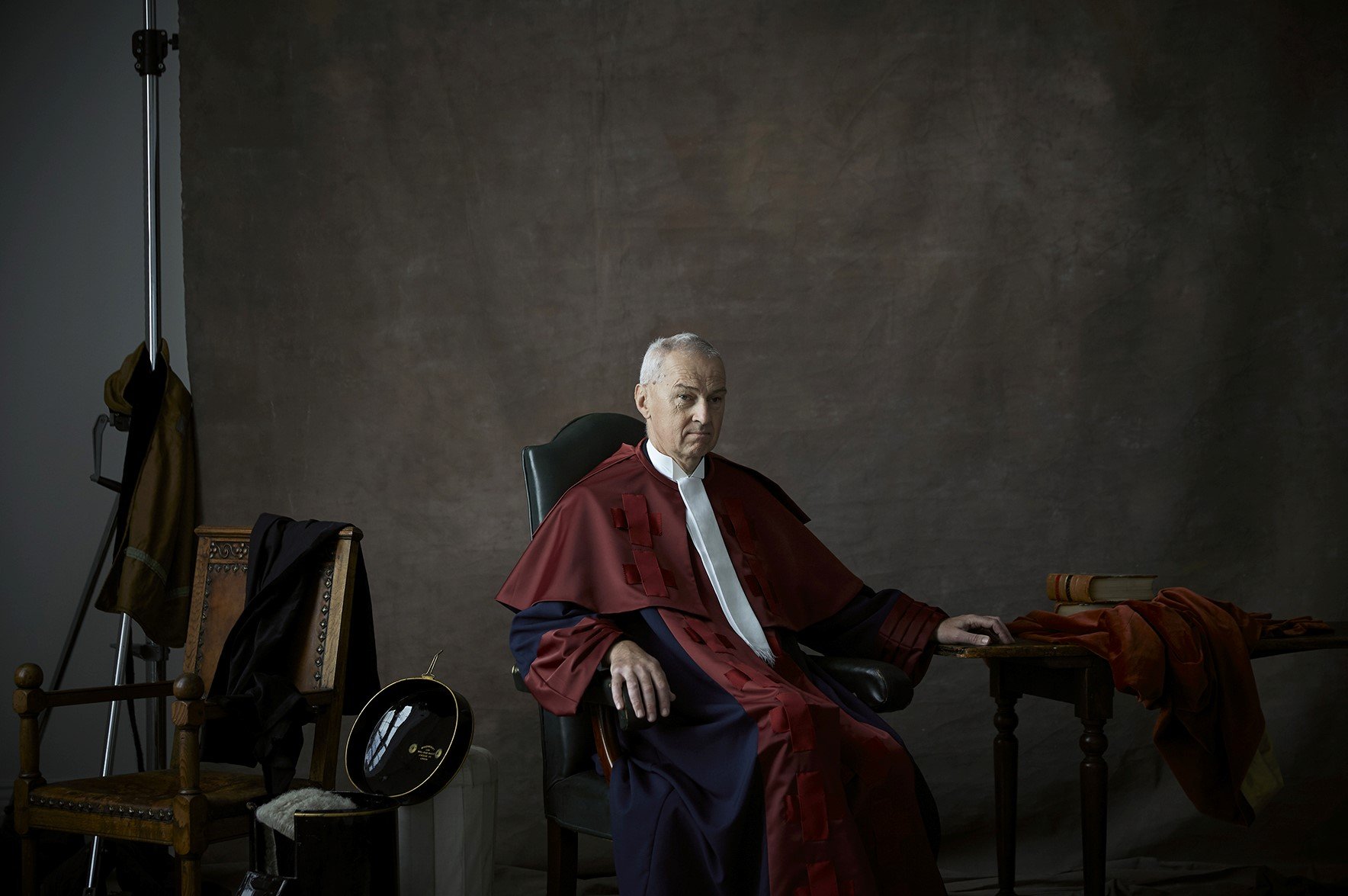First reported in Scottish Legal News (12 April 2023) https://www.scottishlegal.com/articles/lawyer-of-the-month-robert-pirrie-ws. Written by Jimmy Black.
Jimmy Black meets corporate lawyer Robert Pirrie WS, chief executive and in-house lawyer of the Society of Writers to the Signet.
Deep in the cellars of the Signet Library, there are caverns with sturdy doors, guarding some of the Scottish legal profession’s most fascinating historical treasures. There are stacks of original court papers, centuries old, detailing criminal cases and much else. When Robert Pirrie was studying for his masters degree, he would find 18th century legal papers recording a trial in one cellar, then search in the cellar next door for contemporary newspaper accounts of the case.
“I had quite a few ‘bingo’ moments, when I hit on a newspaper report of the legal case I was reading. Online news archives are phenomenal, but getting the physical newspaper gives you a different feeling; you get a much better idea of what else was being reported at the time.” Let’s hope people are reading our Scottish Legal News reports in three hundred years.
After 18 years in the job, Robert’s enthusiasm for the Society, the Signet Library and Scots law in general is undiminished. Along with his colleagues he is leading change to ensure that the Society remains relevant, useful, and well-funded. There are challenges. The Signet Library offers a highly-rated CPD conference programme and professional research facilities to lawyers working on current cases. The Society also provides administrative services to other charities, helping them lower their running costs and help with marketing by, for example, building their websites.
To undertake these activities, the Society employs an executive of three lawyers — a trainee, a principal researcher, an administrative manager — and support team. Working with the Society’s trustees, the executive meets regularly with a representative council of members to discuss strategy and initiatives.
In his spare time, Robert is finishing a history PhD at King’s College London. More of that later, but as chief executive of the Writers to the Signet (WS), he is wonderfully placed to explore the thousands of books which line the Library’s walls, and sift through centuries of Scotland’s legal history. But this resource is not exclusive to Writers to the Signet. He wants other lawyers, academic researchers, even journalists to come and do the same.
“For me, heritage and history are really important. I felt that to do my job here, I needed to have a much better understanding of historical studies, and how the resources we’ve got here can be used, their relevance to academic historians and so forth. So I’ve become a kind of mix of lawyer and historian, and I think that’s what the Society needs.”
No-one has to become a Writer to the Signet but many still do. In the past the Society laid down standards which its members had to follow, but in 1949 the regulatory role of the Writers to the Signet passed to the newly-established Law Society. Historically the only route to a Court of Session action was through a Writer to the Signet. The Society was relieved of that function in 1976. Membership remains core to the Society and Robert and his team are particularly encouraged by the number of younger lawyers and law students who want to join.
“When I first came here,” says Robert, “the building was this kind of sacred place for legal research. But there was nobody here, because technology was changing things. The days when this place would be full of lawyers coming to sit at desks, and messengers coming to borrow books, were over. So the Society had to look at how to repurpose the building.”
This is a very special building. The Upper Library was built in 1822, just in time for King George IV to marvel at “the finest drawing room in Europe”.
Stepping into the entrance hall brings immediate relief from the noisy hubbub generated by hundreds of tourists outside. The staff are polite, formal but very welcoming.
Important men who once wielded great power stare at you out of magnificent paintings by Scotland’s premier artists; women also take their place on the walls, perhaps most notably Amal Clooney, international barrister and human rights lawyer who became a Fellow of the WS in 2021.
“The big change that we’ve made in recent years,” says Robert, “is to welcome the public into the building. We want to open it up, let people in, and we want to do that with the historic collections as well, and allow people access to all the treasures that we’ve got here.”
So Robert, the Society’s trustees and executive set out a strategy — called “New Enlightenment” — to change the perception of the Society, get back to its original public benefit principles, deal with practical questions such as energy efficiency and also develop the full potential of the building. The Writers to the Signet had been constituted as a corporation at common law, one of the earliest forms of incorporated bodies. “Institutional writers recognised that we were there for public benefit, providing access to the resources which properly qualified, validated lawyers need to give good legal advice.”
The first obvious evidence of the opening up of the Signet is an afternoon tea salon in the Library. There’s no music, noisy coffee machines or self-service counters, only people sitting round tables enjoying civilised conversations. Staff bring them sandwiches, savouries and cakes on silver tea stands. The building is a venue for weddings, conferences, events, private dining … it’s a very classy business which earns money for one of Scotland’s A-listed architectural gems.
Charities exist for public benefit; it seemed logical that the Society would adopt a more modern model, restate its purposes and become eligible for new sources of funds to invest in the building. Now the Society exists to (1) advance and disseminate knowledge and education in law and legal practice for public benefit; promoting high standards of expertise and professional conduct; (2) advance the arts, heritage and culture through the Signet Library and its collections; and (3) promote equality and diversity and advance citizenship and community development.
Back in the pressured environment of the 1990s and early 2000s, Robert was a hard-working corporate lawyer who tried to build a rapport with the agents on the other side of a transaction, and the clients. “There were lots of late nights, working in that era; unfortunately my career hit a period where if you had to stay up all night, you did that. So you’d often find yourself in a boardroom at three in the morning, and that’s when people are getting a bit ragged and the rapport comes in.”
Robert was head of private equity in one of the big four law firms, part of a global professional services organisation and business took him to Los Angeles, Milan, Barcelona, Paris and New York. Clients varied from Versace to 3i to the Church Commissioners for England.
Robert explains his understanding of the law like this: “It’s about trying to control the world with words. Obviously, you’ve got contracts and statutory law, but then you go 180 degrees the other way and it’s maybe persuading people with an email or a letter. It’s all about how you use language.
“Some lawyers can be quite rigid about how they use words. And sometimes they can use words quite insensitively in situations. And I think the best lawyers are constantly reading the situation and reading people, and adjusting how they communicate accordingly.”
Technology has helped lawyers become more efficient, but Robert still stresses that the proportionate use of words is vital. “When PCs came in it multiplied the number of issues that you can have in a contractual situation. You know, when the contract was typed out by a typist, it could only be so long and there could only be so many issues that you could argue about. It’s still incredibly important that a contract, or whatever, is proportionate to the matter in hand … you know anyone can wheel out a hundred-page contract and throw it at the other side.”
I mentioned earlier that Robert will soon complete a PhD. The title is “Imagined Monarchy: Constructing North Britain, 1746-1830”. This was the time when Edinburgh’s aristocrats, wealthy merchants, judges, even Writers to the Signet left the hoi polloi in the Old Town and populated the elegant terraces of the New Town. Public buildings such as the Exchange (now the City Chambers) and the Signet Library itself appeared and the city became fit to offer hospitality to the monarch, who was greatly impressed.
Philosophers such as David Hume thrived in the Scottish Enlightenment; literary figures such as Robert Burns and Sir Walter Scott were internationally acclaimed and in the absence of a Parliament, lawyers such as Henry Dundas largely ran the country. There was the judge and philosopher Lord Monboddo, who Robert says rode on horseback to London every year, to meet the King. It was a fascinating time. But why do lawyers need to understand history? And why should they join the Society?
“What being a WS signifies today is that a belief that history, continuity and Scottish legal heritage is important. That makes you a more interesting lawyer. You’re not just looking at your daily work, but you’re also interested in history and broader society. I genuinely believe that makes better lawyers, that’s a personal credo of mine.”
It’s not just history. “I tell younger lawyers to read, read everything, read history, read novels. For me 19th century literature is a kind of early psychology, basically. And Trollope, Dickens, Austen – there’s just so much in Dickens. I’m a big fan of Walter Scott, he’s much misunderstood. He was a lawyer, an advocate, not a WS, but his father was a WS and Scott served an apprenticeship with him.”
It’s a far cry from arguing over contract terms in the middle of a dark Edinburgh, Glasgow or London night, but Robert is completely at home at the helm of such a diverse organisation. I asked this quite reserved and very courteous Edinburgh lawyer if he loved the building. He had no hesitation.
“I absolutely love this building. I love this institution. There’s nothing like it. It’s an incredible building to work with, and the people who work here, everybody gets it, there’s a magic, a charisma. If buildings can have charisma, this building has got it. It’s a very special place to work and it’s a genuine privilege to work here.”









































